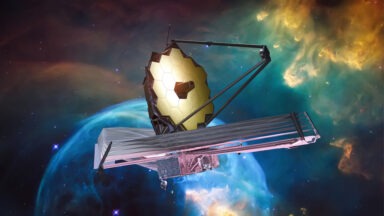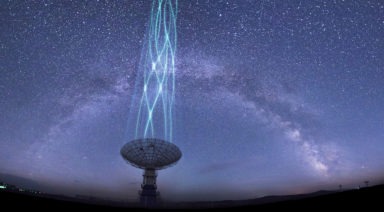Earth’s Magnetic Field is Shifting and Geologists Don’t Know Why

Something strange is happening with the Earth’s magnetic field and scientists are unsure why, according to a recent paper published in the journal Nature. A consortium of geologists in charge of the World Magnetic Model is having trouble keeping track of the planet’s magnetic north pole as it rapidly shifts from Canada to Northern Siberia.
Scientists updated Earth’s magnetic model in 2015, which is used for some pretty important things, including shipping navigation and GPS on smartphones. Their model was intended to last for at least five years, but due to the recent unexpected swing, it became outdated at some point in early 2018 and is now in need of adjustment.
“The error is increasing all the time,” said Arnaud Chulliat, a geomagnetist at the University of Colorado Boulder and the National Oceanic and Atmospheric Administration’s National Centers for Environmental Information.
Scientists say this shift is being driven by liquid iron sloshing around in the planet’s core, a natural process, but one that can vary as the flow changes. Over the past 20 million years, Earth’s magnetic field has consistently experienced a complete pole reversal – usually every 200-300,000 years.
At the moment, we’re long overdue for one of these events, with the last reversal having occurred 781,000 years ago. No one is quite sure what the consequences will be on modern infrastructure when and if that reversal happens. Many take ease in the fact that pole reversals have occurred hundreds of times in the planet’s history without catastrophe, but again, the effect on modern technology remains unknown.
Some scientists have pointed to this shift as a potential culprit in a slew of recent dolphin and whale beachings as well as other unexpected animal die-offs. It’s believed the planet’s natural magnetic field is necessary to some of these animals’ navigation when traveling and communicating over great distances underwater. One NASA scientist is currently looking into this potential connection.
In 2016, a larger-than-usual magnetic pulse shot up from South America, which scientists believe played a role in furthering the recent shift. However, they’re still unsure whether it will continue on this course, or even what will happen at all.
Could we be on the precipice of a massive geomagnetic reversal, or is this just due to slightly-more-anomalous-than-usual activity in the Earth’s core? And what’s even more pressing – what kind of effects is this having on us?
For more on our brain’s relationship with Earth’s magnetic field, check out this Gaia Original short:
Scientists Are Now Using Sound Waves to Regrow Bone Tissue

The future of regenerative medicine could be found within sound healing by regrowing bone cells with sound waves.
The use of sound as a healing modality has an ancient tradition all over the world. The ancient Greeks used sound to cure mental disorders; Australian Aborigines reportedly use the didgeridoo to heal; and Tibetan or Himalayan singing bowls were, and still are, used for spiritual healing ceremonies.
Recently, a study showed an hour-long sound bowl meditation reduced anger, fatigue, anxiety, and depression, which is great news for mental health. But now, a new study out of the Royal Melbourne Institute of Technology in Australia, showed physical healing using sound waves.
Scientists used high-frequency soundwaves to turn stem cells into bone cells in a medical discipline called ’tissue engineering,’ where the goal is to rebuild tissue and bone by helping the body to heal itself.
The researchers shot sound waves at tissue cells for 10 minutes a day over the course of five days. This magnified image shows stem cells turning into bone cells after being treated with high-frequency sound waves.



































